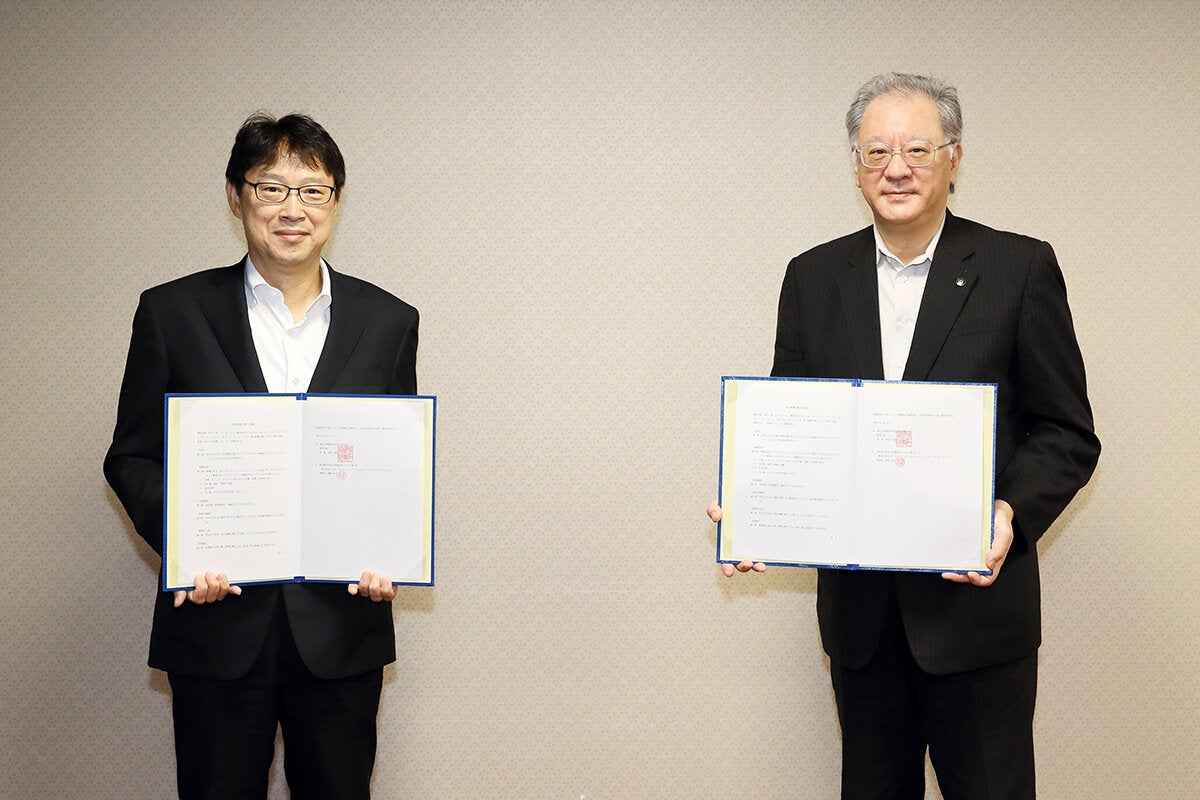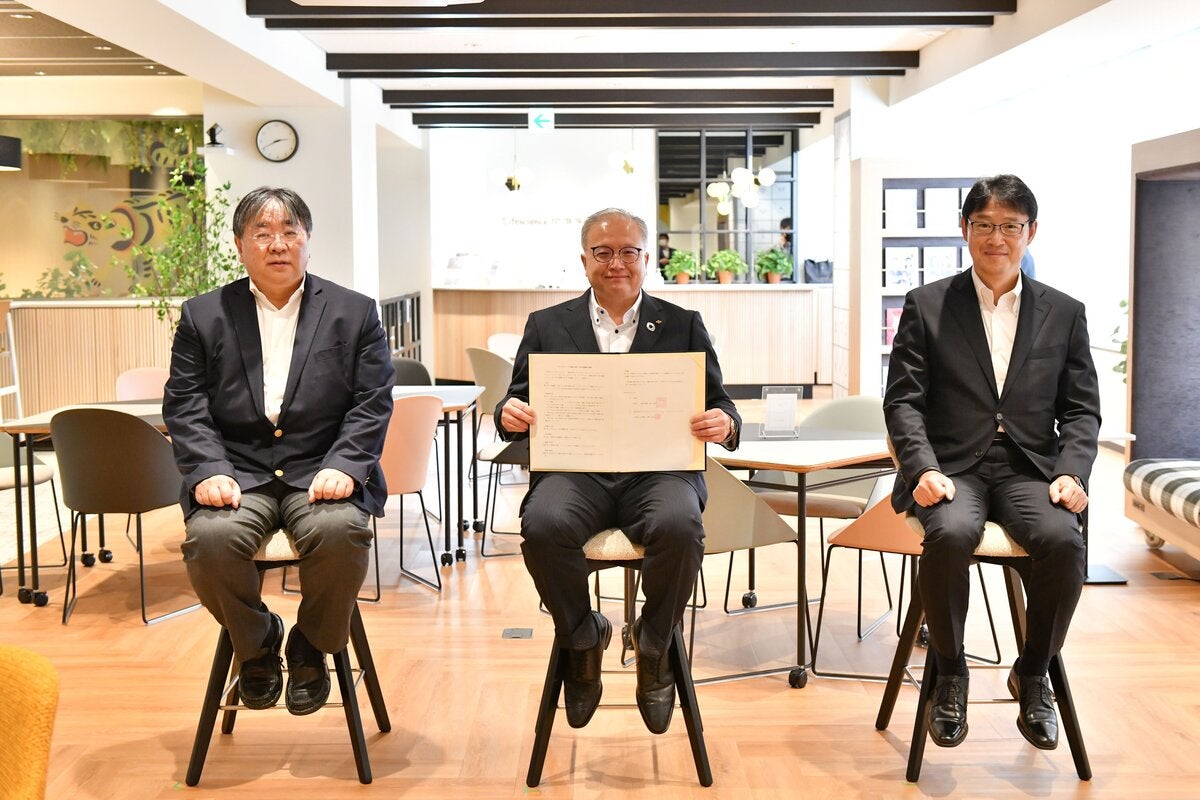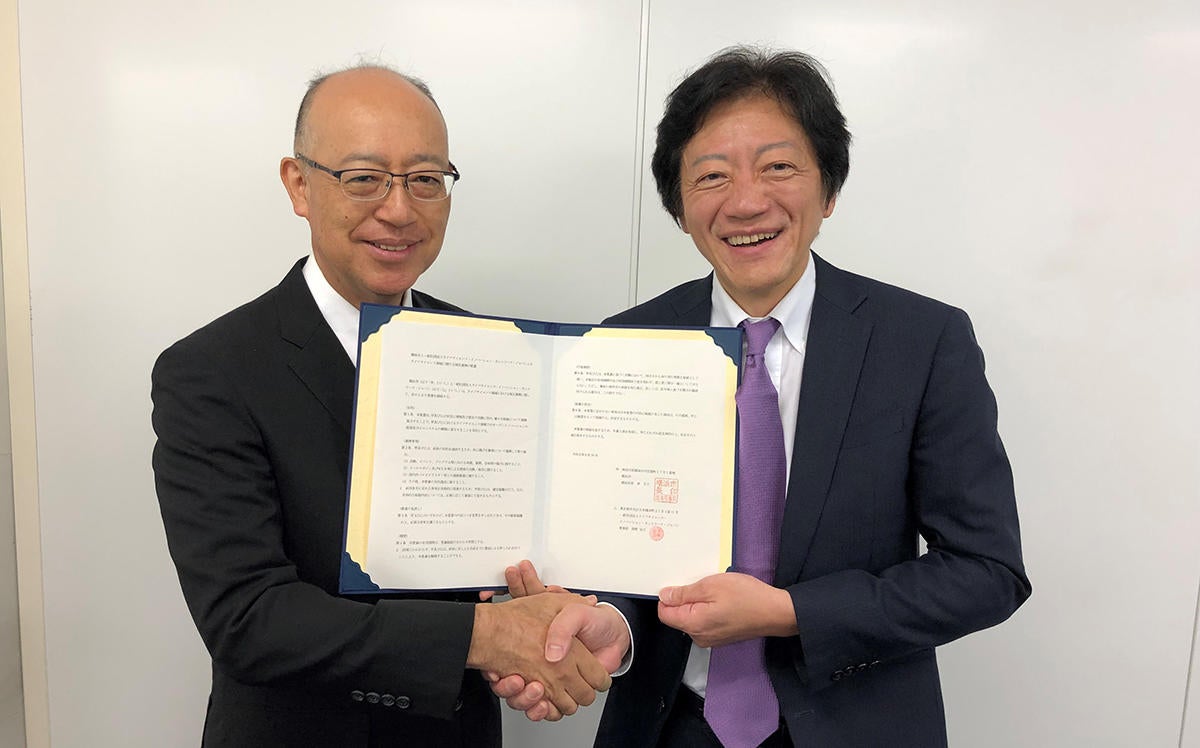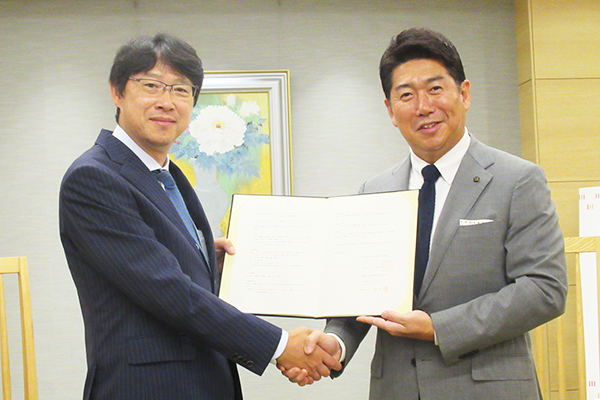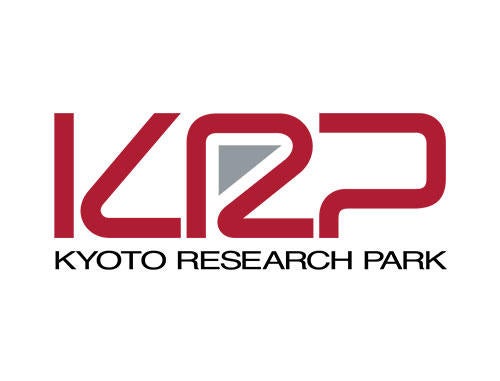Facilitating LINK-J's contribution to open innovations in life sciences by collaborating with a core foundation of Biomedical Innovation Cluster in Kobe, one of Japan's largest biomedical clusters
In January 2018, Life Science Innovation Network Japan, Inc. (head office: Nihonbashi-Honcho, Chuo-ku, Tokyo; chairman of the board: Hideyuki Okano; hereinafter "LINK-J") exchanged a partnership memorandum with the Foundation for Biomedical Research and Innovation (location: Kobe-shi, Hyogo; president: Tasuku Honjo; hereinafter "FBRI"). LINK-J runs a platform for creating new industries in life sciences, while the FBRI supports the creation of innovations originating from Kobe.
The FBRI is a core organization in the Kobe Biomedical Innovation Cluster, an initiative led by the municipal government of Kobe-shi. The FBRI's activities include research and development for the practical application of next-generation healthcare, supporting its commercialization with local small- and mid-sized companies and companies expanding to the Kobe Biomedical Innovation Cluster, international cooperation with overseas clusters and the facilitation of industry, government and academic cooperation among companies, research institutions, universities and medical institutions. In the Kobe Biomedical Innovation Cluster, RIKEN and other research institutions, universities, highly specialized hospitals and more than 344 healthcare-related companies and organizations exist as of the end of January 2018. This is one of Japan's largest biomedical clusters where industries, the government and academic circles cooperate on a broad range of activities, from basic research for next-generation healthcare to the clinical application and industrialization.
After the establishment of a partnership with the FBRI, LINK-J will also cooperate with the Kobe Biomedical Innovation Cluster, in which the FBRI plays a core role, and with the municipal government of Kobe-shi in an effort to contribute to creating open innovations in life sciences through events, personal interactions and information exchange. LINK-J and the FBRI have already started sharing information and personal interactions. For example, the Regenerative Medicine Industrialization Forum took place in Nihonbashi in October 2017, organized by the municipal government of Kobe-shi and co-organized by the FBRI and LINK-J. In January 2018, Dr. Sandrine Miller-Montgomery from the University of California San Diego, a LINK-J's partner, delivered a seminar in Kobe-shi.
"Hopefully the recent establishment of a partnership will spur innovations from the interaction of life science clusters between Nihonbashi and Kobe. We will continue cooperating with LINK-J in an effort to enhance the presence of the Kobe Biomedical Innovation Cluster domestically and internationally to strengthen and globally expand industry, government and academic cooperation and to train human resources," said Mr. Kenichi Tamiya, Managing Director of Pro-Cluster Kobe, the FBRI.
"We are very glad to have the opportunity to partner with the Foundation for Biomedical Research and Innovation, the core of one of Japan's biggest biomedical clusters. We are confident that cooperation among life science organizations throughout many different parts of Japan will lead to new developments and will also help to enhance Japan's competitiveness on a global scale," said Akihiko Soyama, Director, President and Chief Executive Officer of LINK-J.
LINK-J and the FBRI will support the commercialization and industrialization of life sciences, such as regenerative medicine and contribute to the creation of innovations and new industries by mutually facilitating personal interaction, which will involve organizing events and more.
LINK-J has exchanged partnership memorandums with the University of California San Diego (UCSD), BIOCOM (a life science organization based in San Diego, U.S.), Eurobiomed (a life science organization in Southern France), Kyoto Research Park Corp. (the first privately-run research park in Japan) and One Nucleus (a British life science organization and one of the largest of its kind in Europe). The recent partnership with the FBRI is the sixth in a series of similar partnerships. LINK-J will continue to strengthen its presence as a global hub in life science by actively facilitating cooperation with life science organizations in Japan and overseas, as well as universities and research institutions in life sciences.
Life Science Innovation Network Japan, Inc. (LINK-J)
LINK-J is a general incorporated association established by Mitsui Fudosan and volunteers from academic circles. With its base in the Nihonbashi area, home to a number of pharmaceutical companies, LINK-J aims to promote open innovation in the life science realm through industry-government-academia cooperation and to extend support to the creation of new industries. As a platform for the entire life science area, namely the area where all sciences are combined, ranging from medicine to science and further to engineering or new technologies, such as information and communication technology (ICT) or artificial intelligence (AI), it will accelerate interdisciplinary human and technological exchange. The number of members has exceeded 190, including corporations and individuals, in the year and a half since recruitment began. For more details, please visit its website.
(Reference) History of LINK-J's partnerships
| Time | Organization | Description of partnership |
|---|---|---|
| May 2016 | University of California San Diego (UCSD) (U.S.) | -Exchanging publications, documents and information -Mutually organizing programs and events - Organizing symposiums in Nihonbashi and inviting a well-known professor, etc. |
| May 2016 | BIOCOM (U.S.) | - Providing services to members of both organizations - Exchanging publications, documents and information - Mutually organizing programs and events, etc. |
| June 2017 | Eurobiomed (France) | - Providing services to members of both organizations - Exchanging publications, documents and information - Mutually organizing programs and events, etc. |
| July 2017 | Kyoto Research Park Corp. (Japan) |
- Cooperation in organizing, co-sponsoring and |
| December 2017 | One Nucleus (U.K.) | - Providing services to members of both organizations - Exchanging publications, documents and information - Mutually organizing programs and events, etc. |
About the Foundation for Biomedical Research and Innovation
The Foundation for Biomedical Research and Innovation was established in March 2000, funded by the municipal government of Kobe-shi and Hyogo Prefecture. It is a core organization supporting the Kobe Biomedical Innovation Cluster. The Foundation for Biomedical Research and Innovation runs IBRI Laboratory, Translational Research Informatics Center, Pro-Cluster Kobe and R&D Center for Cell Therapy, and has a basic mission of contributing to the revitalization of the economy in Kobe-shi and the Kansai area, enhancing the health and welfare of people in Kobe and Japan and raising the global standard of healthcare by pushing forward with Integrative Celerity Research (ICR) to quickly apply the results of basic research on healthcare technologies to clinical practice, providing advanced healthcare and embodying medical innovations. For details, see the FBRI's website at http://www.ibri-kobe.org/.
